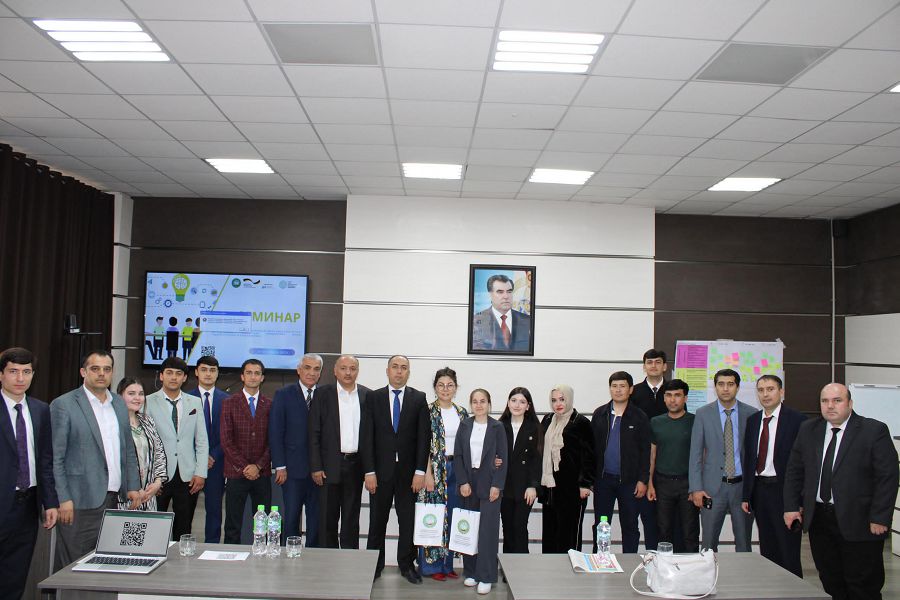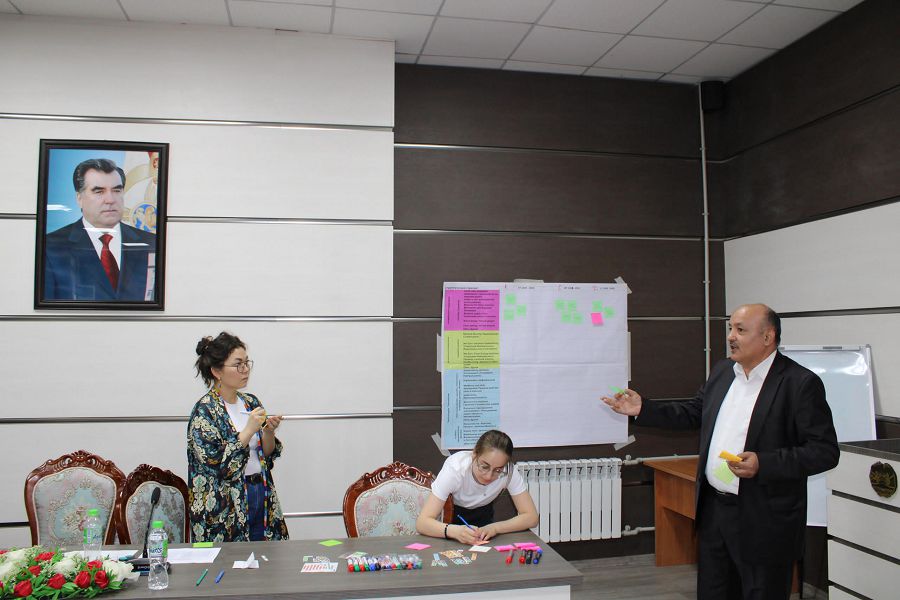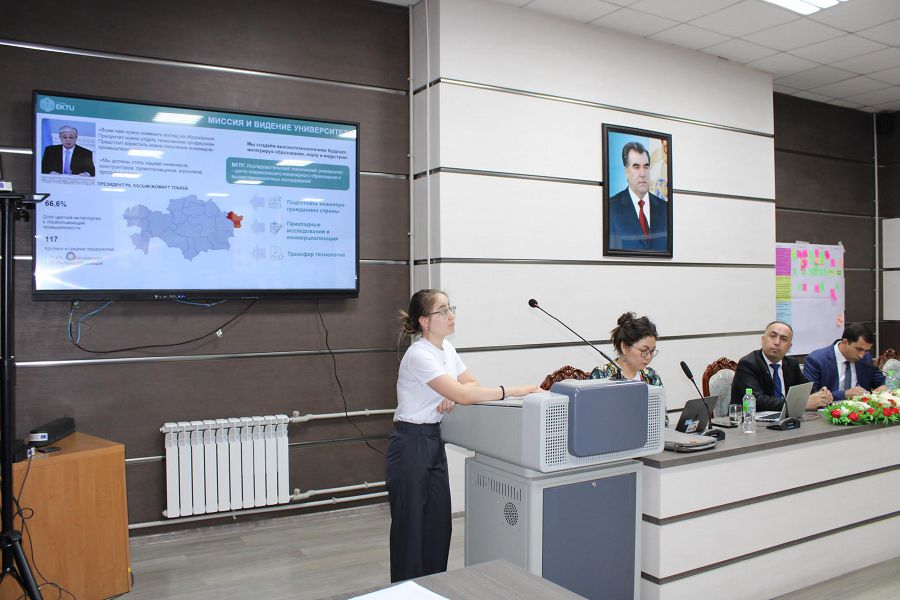2025 жылғы 9 сәуірде Д. Серікбаев атындағы Шығыс Қазақстан техникалық университеті (ШҚТУ) Тәжік мемлекеттік коммерция университетінің (ТМКУ, Душанбе қ.) базасында бизнес-қоғамдастық өкілдеріне арналған стратегиялық жоспарлау бойынша мамандандырылған семинар өткізді. Іс-шара Deutsche Gesellschaft für Internationale Zusammenarbeit (GIZ) GmbH қолдауымен жүзеге асырылып жатқан PECA бағдарламасы аясындағы «Университеттік зерттеулер арқылы инновацияларды ілгерілету: Тәжікстан мен Қазақстан арасындағы бірлескен бастама» халықаралық жобасы шеңберінде ұйымдастырылған білім беру бағдарламасының қорытынды кезеңі болды.
Семинардың мақсаты – өнеркәсіптік секторды ғылыми-зерттеу үдерістеріне тарту, тұрақты даму үшін ортақ күн тәртібін қалыптастыру және қазіргі экономикалық трансформация жағдайында нақты нәтижелерге қол жеткізе алатын зерттеу бағыттарын анықтау. Бағдарлама «мотивациядан іске көшу» қағидатына негізделіп, халықаралық сараптаманы топтық жұмыс форматымен ұштастырды. Бұл қатысушыларға өзекті сын-қатерлерді түсініп қана қоймай, сонымен қатар нақты шешімдер ұсынуға мүмкіндік берді.
ШҚТУ өкілдері қатысушыларға ғылым мен бизнес арасындағы өзара ықпалдастықтың стратегиялық моделін ұсынды. Ол «неге – не – қалай» әдістемесіне негізделіп, тұтынушылық сұраныстың өзгеруі, экологиялық талаптардың күшеюі, логистикалық тізбектердің трансформациясы және төмен көміртекті экономикаға көшу сынды мәселелерді қамтыды. Цифрлық платформалар, блокчейн технологиялары, Big Data, жасанды интеллект және биотехнологиялар негізінде компаниялардың жаңа жағдайларға бейімделу жолдары ұсынылды.
Университеттердің нарықтық сұраныстарға жауап беретін ғана емес, сонымен бірге бизнес-пен бірлесе отырып инновациялық күн тәртібін қалыптастыра алатын технологиялық шешімдердің генераторы ретіндегі рөліне ерекше назар аударылды. ШҚТУ өз тәжірибесінде табысты жүзеге асырған халықаралық OCTA Innovation, NANOEATERS, SMART-TIO және PRIMA жобалары таныстырылып, қатысушылар арасында сенім атмосферасын қалыптастырды әрі талқылаудың аймақаралық ауқымын кеңейтті.
Семинардың практикалық бөлігі уақыт көкжиегіне негізделген стратегиялық талдау әдістемесі бойынша топтық жұмыс форматында өтті. Бизнес, ғылым және білім беру саласының өкілдері тамақ өнеркәсібінің негізгі сын-тегеуріндерін бірлесіп анықтап, оларды жіктеп, қысқа, орта және ұзақ мерзімді кезеңдерге арналған зерттеу бағыттарын белгіледі. Басымдыққа ие тақырыптардың қатарында – инженерлік кадрлардың жетіспеушілігі, өнімнің төмен рентабельдігі, технологиялық артта қалу, импортты алмастыру қажеттілігі және экспорттық нарықтарды игеру мәселелері болды.
Жұмыс қорытындысы ретінде бірлескен ғылыми бастамалар пакеті әзірленді. Оған пилоттық өндірістік желілерді дамыту, азық-түлік логистикасында жасанды интеллектіні енгізу, био және наноматериалдарды сынақтан өткізу, сондай-ақ университеттер мен жеке сектор арасында тұрақты тәжірибе алмасуға арналған тұрақты платформаны құру ұсыныстары енді.
Семинар Орталық Азия кеңістігінде ғылым мен бизнестің ұзақ мерзімді стратегиялық әріптестігін дамытуға арналған маңызды бастамаға айналды. ШҚТУ ұсынған ғылыми зерттеулерді индустриялық процестерге интеграциялау тәсілі қатысушылар тарапынан тез өзгеріп жатқан экономикалық жағдайлардағы кәсіпорындардың тұрақтылығы мен бәсекеге қабілеттілігін арттырудың тиімді құралы ретінде жоғары бағаланды.




